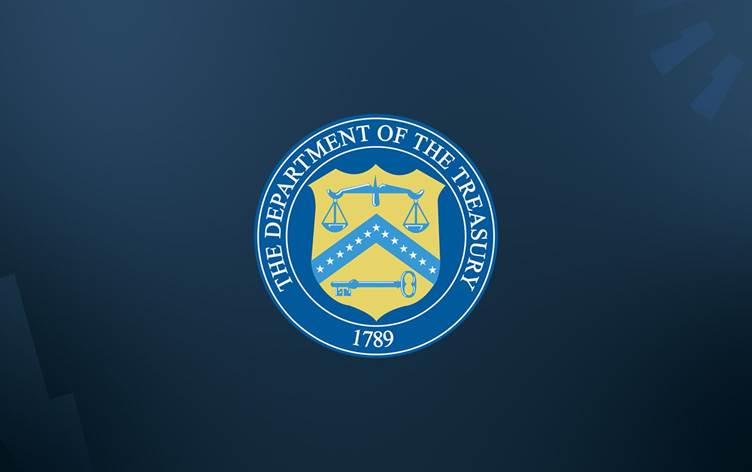ERBIL, Kurdistan Region - The United States Department of Treasury on Monday announced its sanctioning of Iraqi airline Fly Baghdad and several members of Iran-backed militia Kataib Hezbollah for providing assistance to Iran’s Islamic Revolutionary Guard Corps (IRGC).
The US Department of Treasury’s Office of Foreign Assets Control (OFAC) said that it has designated Fly Baghdad and its CEO Basheer Abdulkadhim Alwan al-Shabbani, “for providing assistance” to the IRGC’s Quds Force and its proxy groups in Iraq, Syria, and Lebanon.
According to the US Treasury, Fly Baghdad “has supported the operations of the IRGC-QF [Quds Force] and its proxies by delivering materials and personnel throughout the region.”
“Fly Baghdad flights have delivered shipments of weapons to Damascus International Airport in Syria for transfer to members of the IRGC-QF and Iran-aligned militia groups on the ground in Syria, including the Syrian Arab Republican Guard, Lebanese Hizballah, KH [Kataib Hezbollah], and the KH-affiliated Abu al-Fadl al-Abbas Brigade,” read the statement.
The US Department of Treasury added that Fly Baghdad was also involved in transferring hundreds of Iraqi fighters, including fighters of the Iran-backed militia group Asaib Ahl Al-Haq, in support of the Iranian proxies’ attacks on Israel, in October.
Along with Fly Baghdad, the OFAC also designated three leaders and supporters of the Iran-backed Kata’ib Hezbollah, “as well as a business that moves and launders” for the group.
The statement named Hossein Moanes al-Ibudi, a senior member of the Kataib Hezbollah and a member of the Iraqi parliament, Riyad Ali Hussein al-Azzawi, an unmanned aerial vehicle (UAV) specialist and an engineer for the Iran-backed Popular Mobilization Forces (PMF), and Awqad Muhsin Faraj al-Hamidawi, who directs Kataib Hezbollah’s “businesses and aspects of the financial portfolio,” as part of the list of individuals sanctioned by the US “for having materially assisted, sponsored, or provided financial, material, or technological support for, or goods or services to or in support” of the group.
A travel company, al-Massal, was also sanctioned on the grounds that it was used by Kataib Hezbollah to generate revenue and launder money.
“Al-Massal is being designated … for being owned, controlled, or directed by Awqad al-Hamidawi,” according to the statement.
“Iran and its proxies have sought to abuse regional economies and use seemingly legitimate businesses as cover for funding and facilitating their attacks,” said US Undersecretary for Terrorism and Financial Intelligence Brian E. Nelson, adding that the US will “continue to disrupt Iran’s illicit activities aimed at undermining the stability of the region.”
As a result of this move, all assets and property belonging to the specified legal persons, “that are in the United States or in the possession or control of U.S. persons,” are blocked and must be disclosed to the Treasury’s OFAC. Furthermore, any organizations that are owned, whether directly or indirectly, individually or collectively, by 50 percent or more by one or more individuals subject to asset blocking are also subject to the same restrictions.
Two, Fly Baghdad-owned, Iraqi-registered aircraft were identified as “blocked property in which Fly Baghdad has an interest.”
The US treasury designated the IRGC’s Quds Force as a “Specially Designated Global Terrorist (SDGT)” in 2007, and the US Department of State designated Kataib Hezbollah as an STDG and a “foreign terrorist organization (FTO)” in 2009.
The sanctions come at a time when US interests across Iraq and Syria are the target of drone strikes from IRGC-backed militia groups. On Monday, the Islamic Resistance in Iraq, an Iran-backed group, announced targeting Ain al-Asad military base in Iraq’s western Anbar province with drones.
The group claims its attacks constitute a response to Washington’s support for Israel in its war in the Gaza Strip.
According to the Pentagon, US bases forces have been attacked approximately 140 times in Iraq and Syria since mid-October.
The US has carried out retaliatory strikes against Iran-backed militia groups in Iraq, drawing the ire of the Iraqi government, and amplifying cries of ending the US-led global coalition against the Islamic State (ISIS) mission in Iraq.
In November, the US Treasury Department sanctioned six individuals affiliated with Kataib Hezbollah, and Kataib Sayyid al-Shuhada, another Iran-backed group, as well as its leader Hashim Finyan Rahim al-Saraji.
Washington accused both militias of receiving support from Iran’s IRGC and involvement in dozens of attacks on American interests in Iraq and Syria since Israel’s war with Palestinian Hamas in the Gaza Strip.









Comments
Rudaw moderates all comments submitted on our website. We welcome comments which are relevant to the article and encourage further discussion about the issues that matter to you. We also welcome constructive criticism about Rudaw.
To be approved for publication, however, your comments must meet our community guidelines.
We will not tolerate the following: profanity, threats, personal attacks, vulgarity, abuse (such as sexism, racism, homophobia or xenophobia), or commercial or personal promotion.
Comments that do not meet our guidelines will be rejected. Comments are not edited – they are either approved or rejected.
Post a comment